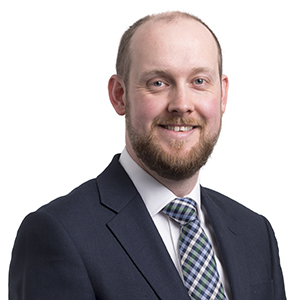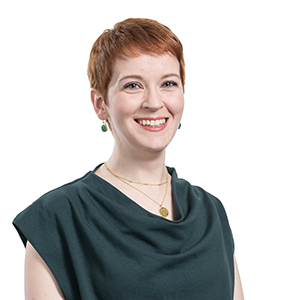
On 21 September 2021, the Court of Appeal handed down its much anticipated judgment in Thaler v Comptroller General of Patents Trade Marks and Designs [2021] EWCA Civ 1374 on whether an AI machine can qualify as an "inventor" for the purposes of the Patents Act 1977 (the Patents Act).
Dr Thaler has pursued his case across a number of jurisdictions; that his AI machine, "DABUS", can create patentable technology. He has been seeking to patent two inventions generated by the machine: a plastic food container based on fractal geometry and a flashing light (or “neural flame”) device to attract attention. The Court of Appeal found that only a person can qualify as an inventor. Consequently, as Dr Thaler accepts that the DABUS machine made the inventions in question, the Court of Appeal found that he is not entitled to apply for patents.
This case demonstrates the challenges that applicants will inevitably face when applying for a patent in respect of an AI generated invention and highlights that the current patent framework is not designed to accommodate such inventions.
Background
Dr Thaler submitted the two patent applications to the UK Intellectual Property Office (UKIPO) designating the DABUS machine as the inventor. In his application forms, Dr Thaler indicated that he had the right to be granted patents due to his "ownership of the creativity machine 'DABUS'". In response, a UKIPO hearing officer confirmed that s.13(2) of the Patents Act required him to identify a "person" as the inventor and to set out how he had derived his right to be granted the patent from that "person". The UKIPO considered that Dr Thaler had not satisfied the s.13(2) requirements and consequently deemed his applications to be withdrawn.
The High Court later ruled against Dr Thaler, upholding the UKIPO hearing officer's decision.
While Dr Thaler has been successful in Australia and South Africa, the European Patent Office and a district court in the US have taken similar positions to the UK High Court and have rejected Dr Thaler's arguments.
Court of Appeal
Dr Thaler appealed the High Court's decision and on appeal the Court considered the following three issues:
- Does the Patents Act require an "inventor" to be a "person"?
The Court of Appeal unanimously held that, within the meaning of the Patents Act, an "inventor" can only be a "person". Some of the examples cited include s.7(2)(c) of the Patents Act which refers to a "person or persons mentioned in paragraph (a) or (b)", and s.13 of the Patents Act which requires an applicant to identify the "person or persons whom he believes to be the inventor or inventors". The Court was therefore clear that the current UK patent framework will not recognise an AI machine as an inventor.
- Was Dr Thaler entitled to apply for patents for inventions made by DABUS?
Although Dr Thaler accepted that he could not apply for a patent as the inventor (under s.7(2)(a)) or as a successor in title to DABUS (under s.7(2)(c)), he claimed that he was entitled to apply under s.7(2)(b) of the Patents Act as at the time of making the inventions he was entitled to "the whole of the property" in them by virtue of a rule of law.
On this point, Lord Justice Arnold noted that “an invention is a piece of information” and there is "no property in information even if it is confidential". When s.7(2)(b) of the Patents Act referred to "the whole of the property" in the invention, the property referred to was simply the right to apply for and obtain a patent for that invention.
Furthermore, Dr Thaler relied upon the common law doctrine of accession (described in chapter 26 of Blackstone's Commentaries on the Laws of England). Dr Thaler argued that under this doctrine he was entitled to the property in any of the DABUS machine's inventions because he was the owner of the DABUS machine. Lord Justice Arnold did, however, make the point that the doctrine of accession has only been applied in instances concerning new tangible property which is produced by existing tangible property, and Dr Thaler's counsel admitted that this was accurate.
Lord Justice Arnold confirmed that there is currently "no rule of law that a new intangible produced by existing tangible property is the property of the owner of the [existing] tangible property", and there is certainly no rule that the property contemplated by s.7(2)(b) in an invention created by a machine is owned by the owner of the machine. Consequently, as Dr Thaler admitted that the DABUS machine had created the inventions, he was not entitled to apply for patents for those inventions.
- Was the UKIPO correct to deem the applications withdrawn by virtue of s.13(2) of the Patents Act?
Under s.13(2) of the Patents Act, patent applicants are required to include a statement within their application that identifies the person(s) who they believe to be the inventor(s) and indicates how the applicant has derived their right to be granted the patent. The key question in this case was whether Dr Thaler met the requirements of s.13(2) by declaring that he believed that the DABUS machine was the inventor. Although Lord Justice Briss considered that Dr Thaler had complied with the requirements of s.13(2) as the statement he had given was his "genuine belief", Lady Justice Laing and Lord Justice Arnold disagreed.
Lord Justice Arnold said that instead of identifying the person(s) whom he believed to be the inventor(s), Dr Thaler "deliberately identified a non-person as the inventor" and the fact that he may have genuinely believed that DABUS was the inventor was "neither here nor there". Lord Justice Arnold added that Dr Thaler also failed to "identify 'the derivation of his right … to be granted the patent'. He simply asserted that it was sufficient that he owned DABUS. As a matter of law, that is incorrect." According to Lord Justice Arnold and Lady Justice Laing, the UKIPO hearing officer was correct to hold that both applications are deemed to have been withdrawn as Dr Thaler did not comply with either of the s.13(2) requirements.
Conclusion
The judgment provides clarity that, under the Patents Act, an inventor must be a person. It follows that as an AI machine is not a person, it cannot be considered to be an inventor for the purposes of the Patents Act.
The judgment also confirms that there is currently no rule of law that entitles the owner of an AI machine to any new intangible property that is produced by that AI machine, nor is there a rule of law that the property rights in an invention created by a machine are owned by the owner of the machine. As the law presently stands, it is therefore not possible for the owner of an AI machine to apply for a patent for an invention that has been created by that AI machine.
As both Lord Justice Arnold and Lord Justice Birss have commented, much of Dr Thaler's argument related to what the law ought to be, rather than what the law is presently. It is clear that legislative change will be needed if we continue to see an appetite to grant patents in favour of AI machines in future.
Interestingly, academics involved in the Artificial Inventor Project have highlighted that there is little desire to enable AI machines to own a patent. In their opinion, the focus should instead be on amending the currently inadequate aspects of the patent framework, including the fact that refusing to recognise AI machines as inventors may enable people to take credit for work they have not done, thereby devaluing human inventorship by "put[ting] the work of someone who merely asks an AI to solve a problem on an equal footing with someone who is legitimately inventing something new." Other issues identified are that the current framework may inadvertently work to disincentivise the development of inventive AI and transparency within the patent application process.
While it is not yet clear what, if any, changes may be made to the inventorship criteria, it is certainly encouraging that the Government has responded to a recent consultation on the topic as follows:
"We want to ensure the intellectual property systems support and incentivise AI generated innovation… We also want to ensure transparency in the innovation process".
The Government has said that it will build on the respondents' suggestions and consult later this year on possible policy options, including legislative change, and the outcome of that consultation is eagerly awaited.
Should you wish to discuss any of the issues raised in this case, Womble Bond Dickinson has significant experience of helping our clients protect, maximise and monetise their technology and intellectual property assets, as well as advising clients on resolving patent disputes in UK, US and EU courts and patent offices.
This article is for general information only and reflects the position at the date of publication. It does not constitute legal advice.





